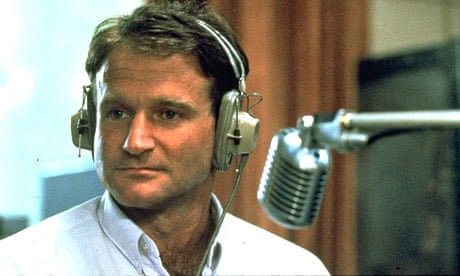Around 6,000 people in the UK kill themselves while depressed every year – a large majority of them (77%) men. They all have different reasons for wanting to end their lives, and usually it is not a single reason – not just the loss of a job, a marital breakdown or a sense of worthlessness but a complex intermingling of negative thoughts and issues. People who are depressed do not necessarily have the drive, the certainty or the know-how to kill themselves. Wall-to-wall coverage on newspaper front pages, on the TV and on the internet of the suicide of a celebrity can change that.
The Samaritans produced a set of guidelines for the media reporting suicides some years ago, in conjunction with journalists, in the understanding that there is a genuine public interest in exploring why people kill themselves. Nobody has ever suggested a news blackout. But the Samaritans and other mental health groups such as Mind say that, above all else, reporting details of the manner in which somebody killed themselves may give the depressed individual information they lacked or an idea they had not thought of and spur them to try it.
But in the rush to understand and report the death of Robin Williams, even that basic rule has been flouted. "It's noticeable that some newspapers are ignoring the Samaritans' media reporting guidelines. Some articles are dwelling on the method," says writer and broadcaster Claudia Hammond, presenter of BBC Radio 4's All in the Mind. "This could be all it takes to encourage someone who was contemplating suicide to actually do it. There's lots of research showing that some people will kill themselves if there's a method available to them, but that if that method is taken away, by having high railings on a bridge, for example, then many will not go somewhere else to do it. They won't try.
"If someone is already feeling desperate, then reading about details of how to do it can be enough. Many years ago an episode of Casualty showed someone taking an overdose of a particular drug. The following week there was a 17% increase in this kind of suicide attempt. To see what could happen here if the media don't start reporting Robin Williams's death more responsibly, you only have to look at what happened in Taiwan after the suicide of a high-profile celebrity, where there was a great deal of media coverage of the method used. For four weeks suicide rates rose."
The guidelines also warn that the tone and extent of coverage can influence somebody thinking of ending their life. If suicide sounds in some way as if it solves a problem or is associated with a brilliant and creative individual, with suggestions that maybe without their depression they would not have been a comic genius, that casts it in a more attractive, more acceptable light. The Samaritans urges us to avoid some terms, such as the old-fashioned "commit suicide", as if it were a deliberate, thought-out act, or "successful suicide", as if this were a positive event, and instead use the balder "death by suicide" or "take one's own life".
In Bridgend in south Wales, news reports suggesting links between a number of suicides may have provoked more. In February 2008, the parents of a 15-year-old boy who killed himself accused the media of glamorising suicide. Sharon Pritchard, mother of Nathaniel, said: "We have lost our son and the media reporting of this has made it more unbearable. We feel the media coverage could trigger other people who are already feeling low to take their own lives. We feel that Nathaniel might have thought it was a way of getting attention without fully thinking through the consequences." Assistant chief constable David Morris said the link between the deaths of four more young people since that of Natasha Randall, 17, which first attracted media attention to the area, was: "You, the media."
Mind twice issued briefings to newsdesks on Tuesday, urging care over the reporting of Robin Williams's death. "We are disappointed to see some quite graphic language about the method of suicide. There is clear evidence that graphic reporting can lead to copycat behaviour," said Alison Kerry of the mental health charity.
Suicide is always tragic. For coverage of one suicide to lead to others is doubly so. Depression is a disease which can be fatal, but does not have to be. With psychological help, and awareness and understanding from the people around them, people can get over the bad times. Mental health issues are under-reported, support organisations say, and so a real opportunity arises in the wake of a tragedy such as the death of a well-loved celebrity to explain mental illness and encourage people to help those who are struggling – and not compound it by inadvertently giving a green light to those who are contemplating ending their own lives.











Comments (…)
Sign in or create your Guardian account to join the discussion